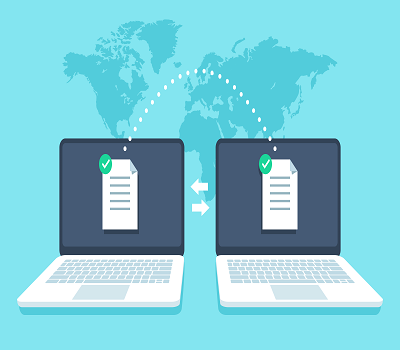Do's and Don'ts to Remember When Running Data Backup in Blaine
One of the recent trends among cyberattacks is the target put on data backups. Ransomware developers are aware that backups foil their plan of holding their victims' data hostage in exchange for a ransom. Now, they are changing their malware to locate and eliminate backups. This is why you need to be more vigilant in managing your data backup in Blaine.
Knowing the biggest and most critical do's and don'ts about how to use your data backup solutions, when to use them, and such can make a difference in protecting your data. Here are the things that you should and shouldn't do.
Do's
- Prepare multiple data backups. The ideal setup for your data backup in Blaine is to store your backup data in different locations. This also depends on the nature of your business. Some might choose to back up their data to on-site device storage on top of their cloud data backup solutions. Others might choose a cloud backup service that stores data in multiple locations and unlimited old file versions that they can restore any time they need to.
- Use a cloud backup service. This is one of the foolproof ways to reduce the risk of data loss. It is much better than physical storage, has features that keep off unauthorized users, and eliminates potential data loss due to syncing and sharing errors. Consider this data backup in Blaine if you haven't chosen one yet.

- Encrypt backup data. Data breaches can make or break some businesses. If not, they can ruin your reputation and credibility among your customers. You can protect yourself against data breaches through encryption. Make sure that your data are encrypted in-transit to the cloud to prevent them from being intercepted by cybercriminals.
- Back up computers and other devices with critical data. It is a common setup for businesses to store data on multiple devices. Identify which ones contain critical data and secure them through data backup in Blaine.
- Find secure storage for data. Aside from securing your data against cybercriminals, you also need to protect them against theft. If you sign up with a provider offering data backup in Blaine, ask them what access controls they have to protect their server network or storage space. These could be a biometric system, locked rooms, secure server cabinets, armed security, cameras, and other security measures.
- Engage your backup service in a free trial. Don't immediately go for data backup solutions if you have not even seen a glimpse of what the provider can do for you. It could either be through a free assessment or a free trial.
- Maintain a healthy frequency between data backups. Depending on what business you're running, there should be an established frequency for conducting your data backup in Blaine. If you save up critical data after a day, then back them up every 24 hours. Make sure to tell your backup service to do it after hours.
Don'ts
- Back up your data in cloud storage. Cloud storage is different from cloud data backup solutions. A backup service is designed to continuously and automatically store business data for easy restoration later. On the other hand, cloud storage merely stores files for easy syncing and sharing.
- Think of cloud storage as your cloud backup service. The more files you save in your cloud storage, the more expensive it gets. It might help in collaboration over shared data, but it would be best to invest in cloud data backup in Blaine to protect your data.
- Share cloud data with unauthorized users. Cloud storage makes it easier to share data with other people, but you have to be extra careful in who you share it with. Verify the authority of that person first before giving them access to your stored data.
- Backup data in one place. This is one of the common mistakes among business owners and even individual users. Storing all your data in a single place increases your risk of data loss if that data storage falls victim to fire, flood, and other natural disasters, theft, or malware infection.
- Use physical data storage only. Physical backup data solutions put your files at risk to natural disasters, hardware malfunction, theft, and device failure, among others.
- Keep too much data in your storage space. Archive less than important data and keep only those that matter to your operation. This will help prevent operating systems from slowing down.
You can discuss these do's and don'ts with a backup service provider like Network Medics. As an experienced managed service provider, we know the ins and outs of backup data solutions. We can give you a free assessment to show you what you need and how we can help. Just call us today or fill out the web form on our site!
Looking for Managed IT Services ?


